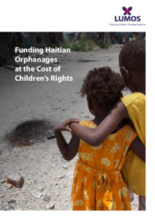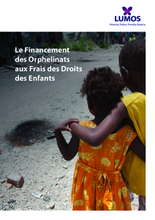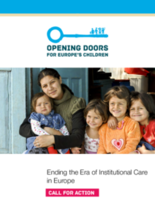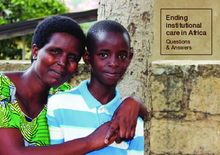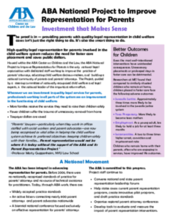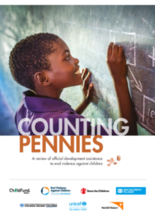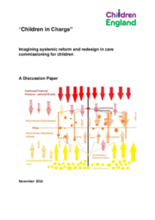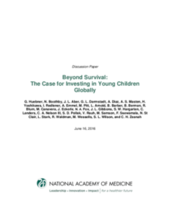Displaying 121 - 130 of 189
In this report, Lumos investigates the funding patterns of Haitian orphanages as well as the ramifications of orphanage life for the children raised within them to better understand why orphanages continue to flourish in the country.
Pour comprendre la raison pour laquelle les orphelinats continuent de se développer en Haïti et la façon dont ils affectent les enfants, Lumos a mené une enquête sur les modes de financement et les ramifications de la vie en orphelinat sur les enfants élevés entre leurs murs.
In this Call to Action, Opening Doors for Europe's Children presents three key demands to the European Union to promote the prioritisation and funding of deinstitutionalisation in the next Multiannual Financial Framework (MFF).
In this Q&A document, organisations that have joined forces to put an end to institutional care in Africa explain why and what they are doing to ensure all children grow up in the love of a family.
This study from the Special Issue on Kinship Care of the Child Welfare Journal examined the impact of a kinship supports intervention implemented in 16 children services agencies in the US.
This brief from the American Bar Association underscores how "providing parents with quality legal representation in child welfare cases isn’t just the right thing to do. It’s also the smart thing to do."
This report is the result of an investigation into the amount of official development assistance (ODA) that is targeted at ending violence against children, either as the main focus or as part of a broader programme.
This paper draws on the literature and practice examples from around the world to examine the fundamental challenges experienced by States in their efforts to implement the 'suitability principle,' as described in the Guidelines for the Alternative Care for Children.
This paper is an attempt at rethinking the systemic problems facing the funding and commissioning of care services and placements for children in need of care and adoption, across ALL types and specialisms of placement, from kinship care, through foster care, to residential care and adoption.
This paper from the U.S. National Academy of Medicine argues the importance of investment in early childhood development and serves as a call to action “to close the gap between what is known and what is done to support the development of children globally and, in turn, sustainable progress for communities and nations.”

